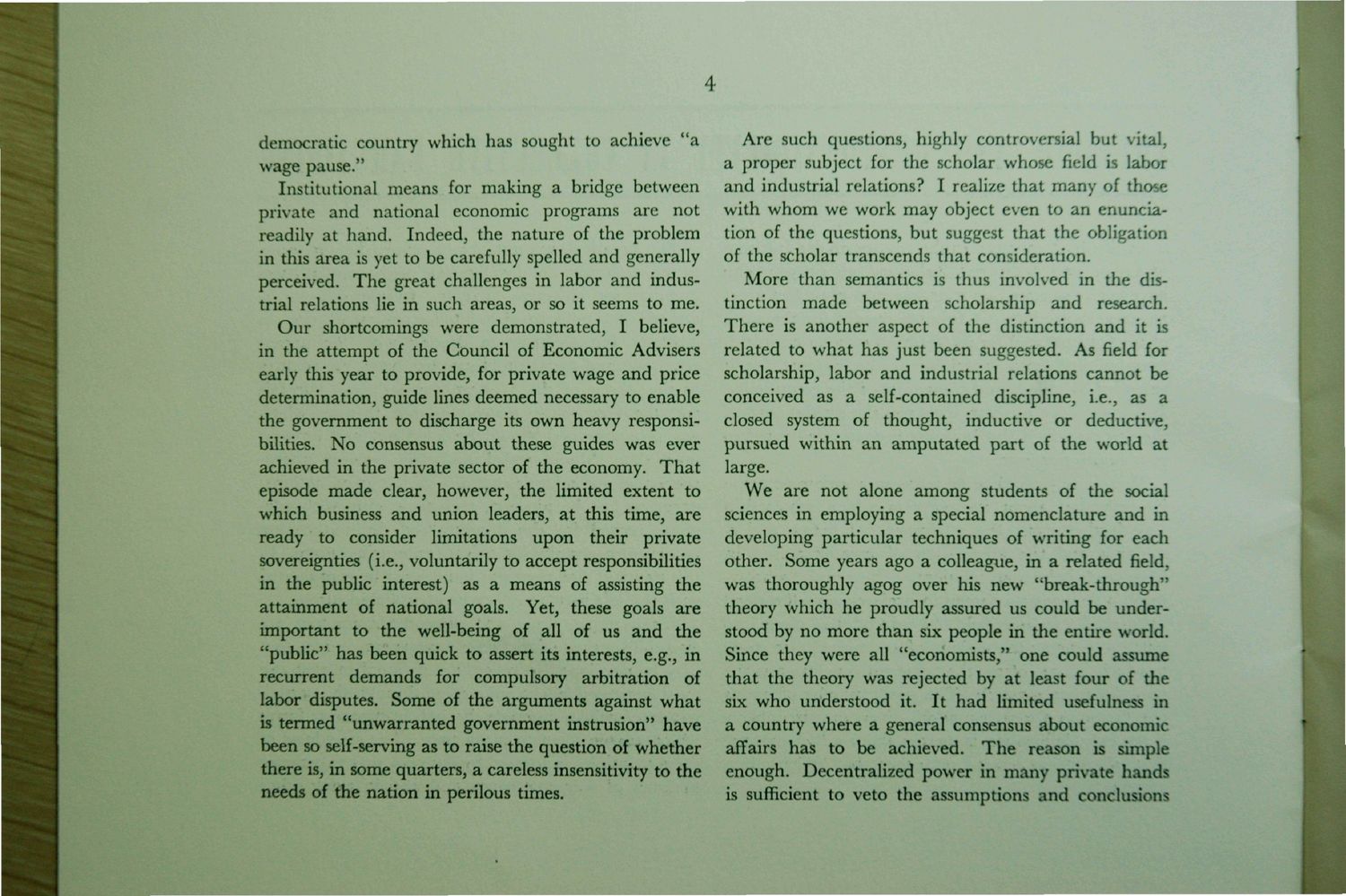| |
| |
Caption: Dedication - Labor and Industrial Relations
This is a reduced-resolution page image for fast online browsing.

EXTRACTED TEXT FROM PAGE:
4 democratic country which has sought to achieve "a wage pause." Institutional means for making a bridge between private and national economic programs are not readily at hand. Indeed, the nature of the problem in this area is yet to be carefully spelled and generally perceived. The great challenges in labor and industrial relations lie in such areas, or so it seems to me. Our shortcomings were demonstrated, I believe, in the attempt of the Council of Economic Advisers early this year to provide, for private wage and price determination, guide lines deemed necessary to enable the government to discharge its own heavy responsibilities. No consensus about these guides was ever achieved in the private sector of the economy. That episode made clear, however, the limited extent to which business and union leaders, at this time, are ready to consider limitations upon their private sovereignties (i.e., voluntarily to accept responsibilities in the public interest) as a means of assisting the attainment of national goals. Yet, these goals are important to the well-being of all of us and the "public** has been quick to assert its interests, e.g., in recurrent demands for compulsory arbitration of labor disputes. Some of the arguments against what is termed "unwarranted government instrusion" have been so self-serving as to raise the question of whether there is, in some quarters, a careless inserisitivity to the needs of the nation in perilous times. Are such questions, highly controversial but vital, a proper subject for the scholar whose field is labor and industrial relations? I realize that many of those with whom we work may object even to an enunciation of the questions, but suggest that the obligation of the scholar transcends that consideration. More than semantics is thus involved in the distinction made between scholarship and research. There is another aspect of the distinction and it is related to what has just been suggested. As field for scholarship, labor and industrial relations cannot be conceived as a self-contained discipline, i.e., as a closed system of thought, inductive or deductive, pursued within an amputated part of the world at large. We are not alone among students of the social sciences in employing a special nomenclature and in developing particular techniques of writing for each other. Some years ago a colleague, in a related field, was thoroughly agog over his new ccbreak-through" theory which he proudly assured us could be understood by no niore than six people iri the entire world. Since they were all "economists," one could assume that the theory was rejected by at least four of the six who understood it. It had limited usefulness in a country where a general consensus about economic affairs has to be achieved. The reason is simple enough. Decentralized power in many private hands is sufficient to veto the assumptions and conclusions
| |